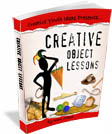“The men who laid the foundations and reared the soaring arches of our great republic had a vigorous, indomitable, and all-encompassing belief in God. Faith permeated their thoughts, their words and deeds. We see Thomas Jefferson’s hand guiding the quill which wrote, ‘I have sworn upon the altar of God, eternal hostility against every form of tyranny over the mind of man.’ We see George Washington, when the fires of hope had flickered to embers, kneeling in the snow at Valley Forge. And we see wise old Ben Franklin suggesting to a Constitutional Convention, deadlocked time after time, that ‘we have prayers every morning.’
This nation was born out of faith in God. It can continue to exist in freedom only as that faith remains forthright and strong. A statesman of a past age said, ‘Despotism may govern without faith, but Liberty cannot.’
Faith in God remains the solid rock that stands unmoved amid the sliding sands. The antithesis of cynicism, it is the dynamo which sparks the minds and actions of men who think beyond the pettiness of self. It is the tie which binds mankind in mystic unity, exalting the human creature until, indeed, he is ‘little lower than the angels.’ And it is the balm which salves the sting of time and death.
Faith in God has meant to me the enjoyment of those manifold ‘blessings of liberty’ which the Founding Fathers sought to secure for all posterity.
It is a fathomless source from which to draw strength in times of adversity. And it has helped me to catch a glimpse of the wisdom implicit in those immutable laws by which He rules His universe.”
J. Edgar Hoover
 MORE IDEAS? See “Creative Object Lessons”
MORE IDEAS? See “Creative Object Lessons”
200 page e-book that explains everything you need to know when planning your very own object lessons. It contains 90 fully developed object lesson ideas and another 200 object lesson starter ideas based on Biblical idioms and Names / Descriptions of God.

